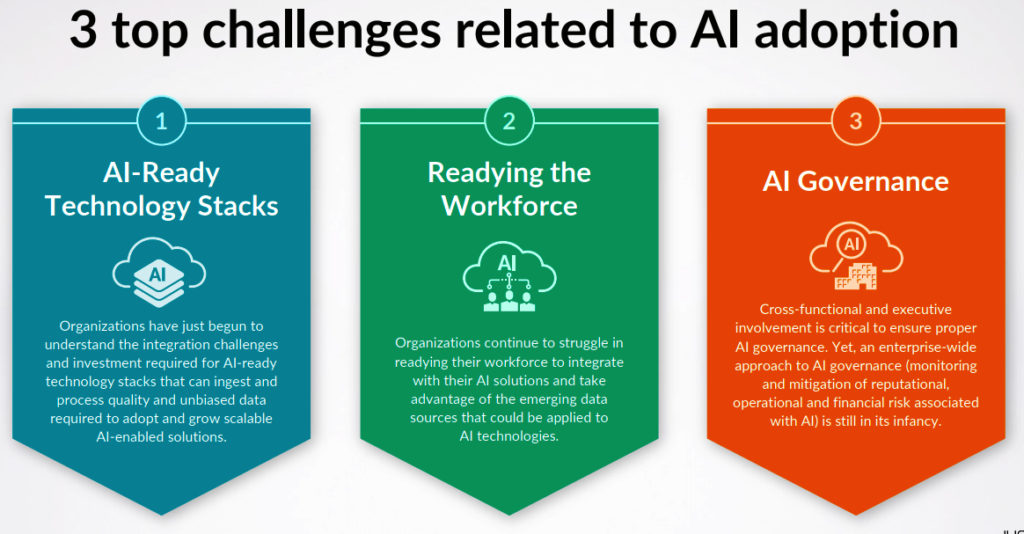Consumers and enterprises want to use Artificial Intelligence (AI) to a greater extent, many executives have put it as a top strategic priority for 2021. However, challenges remain that have hindered actual adoption.
These are the observations drawn from a Juniper Research commissioned of 700 IT decision-makers (globally) with direct involvement in their organization’s AI and/or machine learning plans. It identified respondents in the Asia Pacific (APAC) region as displaying greater levels of trust toward AI with a higher degree of confidence that AI will play a bigger role in their lives going forward.
A key research finding was that some 99% of APAC respondents feel their organization would benefit from the embedding of AI into their daily operations, products and services. Some 42% of respondents reported that 50% or more of their operational decisions are currently assisted by AI decisioning, or will be soon, compared with only 23% of respondents in North America.
Customer Service is reported as the most common business area currently utilizing AI. This has helped to drive broader acceptance and trust, while also accelerating AI adoption and fuelling the demand for employees who are skilled in AI development.
With digital technology tangibly benefiting the way enterprises and individuals operate in the region, respondents in Asia (71%) are more open to seeing AI as their co-worker of the future than in North America (54%).
Challenges ahead

The study identified several challenges that will limit the adoption and development of AI in the Asia Pacific:
AI-Ready technology stacks: Respondents ranked developing AI models and data sets that can be used across the company as the top technology-related challenge.
There is a need for stronger infrastructure – including data, cloud and networking capabilities – and talent to work with AI systems, as more than half of executives (74%) are likely to collect telemetry data to enhance AI to improve user experience.
Workforce readiness: 48% of APAC respondents’ organizations are struggling with preparing and expanding their workforce to integrate with AI systems.
Providing tools and opportunities that help employees apply AI skills is a top priority for leaders, while developing plans and metrics to expand employee skillsets and recruiting pipeline are also of importance.
Meanwhile, C-level respondents reported they feel it is more of a priority to hire people to develop AI capabilities within an organization (Priority No. 1) than it is to train end users to operate the tools themselves (Priority No. 2).
AI Governance: 75% of APAC respondents reported that AI has been identified as a priority by their organization’s leadership team for their FY21 strategic plan and 87% of executives agree cross-functional executive sponsorship and involvement is critical for AI to integrate into their products and services.
Despite broad acknowledgement from respondents, only 3% of executives reported that they have identified a company-wide AI leader who oversees AI strategy and governance.
SVP and CIO at Juniper Networks, Sharon Mandell acknowledges the interest in emerging technologies but cautions others to be aware of pitfalls particularly if adoption is not managed correctly.
“For artificial intelligence, there is no doubt that there is light at the end of the challenge-filled tunnel, and significant potential to generate even more meaningful and incredible outcomes than we have seen so far. By focusing on upskilling their workforce, investing in strong infrastructure – including data, cloud and networking capabilities – and implementing enterprise-wide AI governance, organizations are preparing for the digital workforce of tomorrow,” she continued.
Use cases of AI today
Juniper’s research shows that organizations that have already adopted and harnessed the power of AI are showing real and meaningful outcomes.
The survey revealed Sales and Marketing, as well as Finance and Accounting, are the most common business areas where organizations are currently utilizing AI, with positive changes like operational efficiencies and enhanced user experience being seen.
The research also shows that as organizations scale their AI capabilities and integrate their employees into their solutions, user satisfaction steadily rose and the time given back allows employees to focus on value-add tasks they could not previously accomplish.
“From chatbots in customer service, to discovering new areas of operational efficiencies, and intelligent networking solutions that facilitate seamless transition between devices, these use cases define what it means to work in an experience-first era,” said Ang Thiam Guan, VP and GM, APAC, Juniper Networks.
He cautioned that as the integration of AI technologies continues to deepen in the modern workplace, organizations in Asia Pacific need to have the right mix of talent, AI-driven technology and IT governance.
“This will provide business leaders with the foundation to build an agile, digital-centric workforce who are ready to embrace change and deliver exceptional experiences for their business, customers and communities,” Ang concluded.




